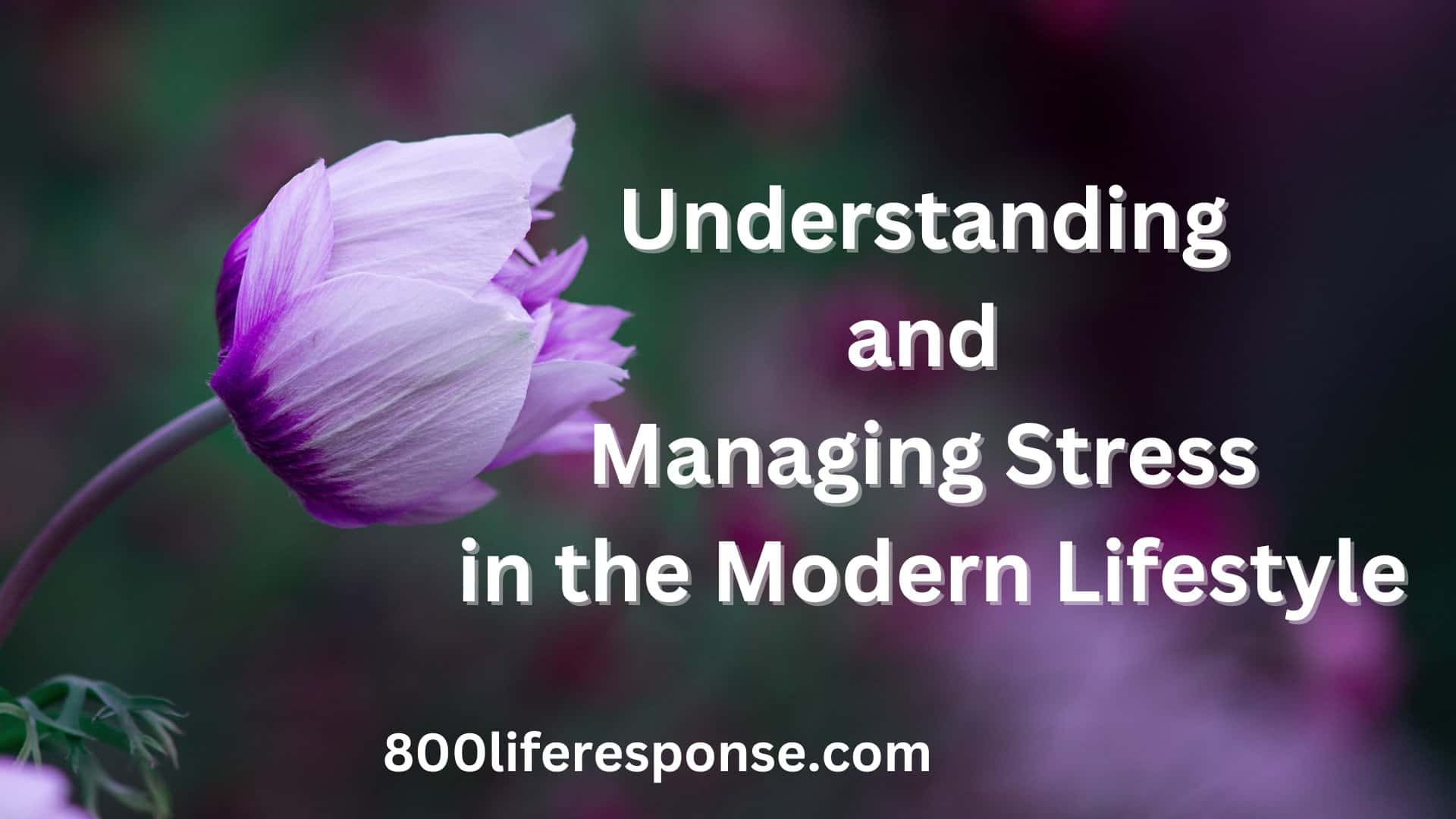Understanding and Managing Stress in the Modern Lifestyle
Introduction
In the hustle and bustle of the contemporary world, understanding and managing stress in the modern lifestyle have become crucial for maintaining overall well-being. As we navigate through the demands of work, relationships, and personal growth, it’s essential to develop effective strategies to cope with the inevitable stressors that come our way.

The Impact of Stress on Health
Stress doesn’t just affect our mental state; it can also take a toll on our physical health. From increased blood pressure to compromised immune function, chronic stress has been linked to various health issues. Exploring these connections sheds light on the importance of stress management for a healthier life.
Signs and Symptoms of Stress
Recognizing the signs and symptoms of stress is the first step in addressing its impact. Whether it’s persistent headaches, changes in sleep patterns, or heightened irritability, understanding how stress manifests allows individuals to take proactive measures before it escalates.
Understanding the Modern Lifestyle
To effectively manage stress, it’s crucial to identify the root causes. Factors such as constant connectivity, information overload, and societal expectations contribute significantly to modern stress. Acknowledging these influences is key to developing targeted strategies for stress reduction.
Strategies for Stress Management
In a world where stress seems inevitable, implementing practical stress management strategies becomes paramount. From time management techniques to mindfulness practices, this section offers actionable advice for individuals seeking to regain control over their lives.
Mindfulness and Meditation
Delving into the role of mindfulness and meditation in stress reduction, this section explores the transformative power of being present. Incorporating these practices into daily life can foster a sense of calm and resilience in the face of challenges.
Healthy Lifestyle Choices
The connection between lifestyle choices and stress is undeniable. Proper nutrition, sufficient sleep, and regular exercise contribute not only to physical health but also play a significant role in maintaining mental well-being.
Work-Life Balance
Striking a balance between professional responsibilities and personal life is a perpetual challenge. This section provides insights into creating a harmonious equilibrium, promoting both career success and personal fulfillment.
Social Connections and Support Systems
Building and maintaining a robust social support network is a fundamental aspect of stress management. Exploring the positive impact of social connections emphasizes the importance of fostering meaningful relationships.
Time Management
Efficiently managing time is a skill that can significantly alleviate stress. This section offers practical tips and techniques for optimizing daily schedules and ensuring productivity without compromising mental health.
Seeking Professional Help
Knowing when to seek professional help is a crucial step in managing stress. This section addresses the stigma surrounding mental health and encourages individuals to reach out to qualified professionals when needed.
Coping Mechanisms
Adaptive coping mechanisms are essential for navigating life’s challenges. This section explores healthy ways to cope with stress, fostering resilience and emotional well-being.
Impact of Stress on Productivity
Understanding the interplay between stress and productivity is vital, especially in professional settings. Strategies for mitigating stress-related productivity challenges are discussed, promoting a healthier and more efficient work environment.
Breaking the Stigma
Promoting open conversations about mental health is instrumental in breaking the stigma associated with stress. This section advocates for a more supportive and understanding society.
Personal Experiences and Insights
Sharing personal stories creates a connection between the author and the audience. Real-life experiences and insights add a human touch to the article, making it relatable and inspiring.
Understanding and Managing Stress in the Modern Lifestyle
This section takes a deep dive into the complexities of modern stress. From societal pressures to individual resilience, understanding the nuances of stress allows for a more comprehensive approach to its management.
FAQs
How does stress affect the body?
Stress can manifest physically, leading to increased heart rate, muscle tension, and digestive issues. Long-term stress has been linked to more severe health conditions, such as cardiovascular disease.
Can stress be beneficial?
While acute stress can be a motivating factor, chronic stress is generally detrimental to health. Balancing stress levels is essential for overall well-being.
How can mindfulness help with stress reduction?
Mindfulness involves being present in the moment without judgment. This practice has been proven to reduce stress by promoting relaxation and mental clarity.
What role does sleep play in managing stress?
Adequate sleep is crucial for stress management as it allows the body and mind to recuperate. Sleep deprivation can exacerbate stress levels.
Is seeking professional help a sign of weakness?
Absolutely not. Seeking professional help demonstrates strength and a proactive approach to mental well-being. It’s a positive step towards self-care.
How can I maintain a healthy work-life balance?
Setting boundaries, prioritizing self-care, and effectively managing time are key to maintaining a healthy work-life balance.
